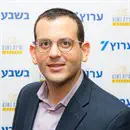The month-long Muslim holiday of Ramadan which ended this week presented the IDF forces in Judea and Samaria with more than a few security challenges.
Ramadan observance entails fasting by day and breaking the fast when darkness falls, but it is also a time when Muslim clerics give fiery speeches that can incite to violence, and have done so in the past. Another aspect of the Ramadan fasting is that Muslim workers are allowed to leave work early and are especially affected by the weather when Ramadan falls in the summer months. Since in Israel many construction, auto repair and carpentry workers are Muslim, these businesses slow down..
At the end of the month, Israeli citizens and soldiers breathed a sigh of relief - it's over, it was relatively quiet, and there were no enormous and horrific terror attacks.
Early on Thursday morning, for the first time since Ramadan began, 2,000 Jews entered Joseph's Tomb in Shechem (Nablus) to pray.
The Kfir Brigade's Shimshon Battalion, who carry out operations in the Samaria region, entered Shechem in an attempt to locate and secure the safest route for the thirty-five Jewish buses arriving at the tomb.
Shimshon Battalion Deputy Commander Major Erez Shabtai told Arutz Sheva that, "We've been stationed here for two months. This is the second entrance that we're securing."
"For the first time since Ramadan began, it's been quiet here. Our forces entered the area to secure the worshipers and allow them to carry out their religious rituals.
"Two hours before the first buses arrived, we entered the area to find the safest route for them to take within the city. We secured the entrance yesterday as part of our general operations, in order to secure the region's residents."
